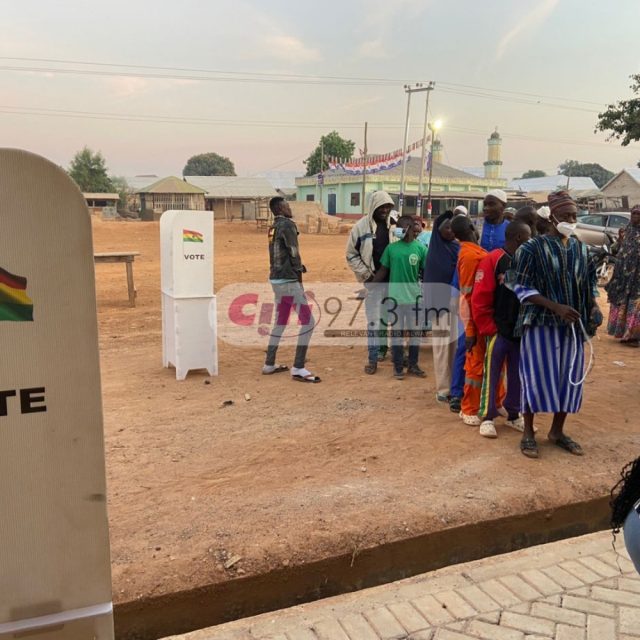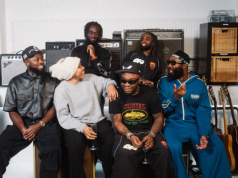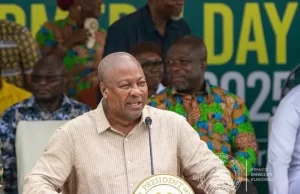Voting is officially underway across Ghana as citizens in all 276 constituencies head to the polls to elect a president and Members of Parliament.
The much-anticipated election, a cornerstone of Ghana’s democracy, is being conducted at 40,647 main polling stations nationwide.
With polling stations opening at 7 a.m., the atmosphere is buzzing with determination and hope as millions of Ghanaians exercise their right to vote.
This year’s general election is notable not only for the sheer number of polling stations but also for the inclusion of 328 dedicated stations for Special Voting, which took place on Monday, December 2.
The Special Voting exercise catered to security personnel, journalists, and election officials who will be on duty during the main voting day, ensuring their voices are heard while facilitating smooth operations on election day.
At the centre of the election are 12 presidential candidates, each vying for the opportunity to lead Ghana for the next four years.
The presidential race features seasoned political figures and new entrants, all presenting diverse manifestos addressing Ghana’s most pressing issues, including economic growth, job creation, education, healthcare, and infrastructure development.
Among the contenders are representatives of Ghana’s two dominant political parties: the New Patriotic Party (NPP) and the National Democratic Congress (NDC), alongside candidates from smaller parties and independent aspirants, all hoping to capture the support of the electorate.
According to data from the Electoral Commission, Ghana’s voter population now stands at an impressive 18,774,159, a notable rise from the 17,027,941 registered voters in the previous cycle.
This growth in voter registration reflects a heightened engagement with the democratic process and a renewed commitment among citizens to shape the nation’s future.
Breaking down the demographics, of the 18.8 million voters, 459,291 represent the diaspora or Special voting categories, accounting for 4 percent of the total voter population.
Additionally, the gender distribution reveals a nearly balanced electorate, with 48 percent male voters and 52 percent female voters. This slight female majority underscores the critical role women play in Ghana’s political landscape, both as voters and as advocates for change.
Perhaps most striking is the role of the youth in this election. Young people aged 18 to 35 constitute 55 percent of the electorate, making them a formidable force in determining the outcome.
With issues such as employment opportunities, quality education, and digital innovation topping their concerns, the youth are expected to play a decisive role in shaping the political discourse.
Political parties and candidates have made concerted efforts to engage with younger voters, utilising social media platforms, youth-focused rallies, and targeted policy proposals to capture their interest.
The Electoral Commission has been forthwith in its preparations, emphasising the integrity and transparency of the electoral process.
Polling stations are equipped with biometric verification devices to ensure credible identification of voters. Security measures have also been heightened, with law enforcement agencies deployed to maintain peace and order throughout the exercise.
Observers from domestic and international organizations are stationed across the country to monitor proceedings and provide an impartial assessment of the election’s conduct.
#GhanaPolls2024
#ElectionBureau
#CitiVerify

















